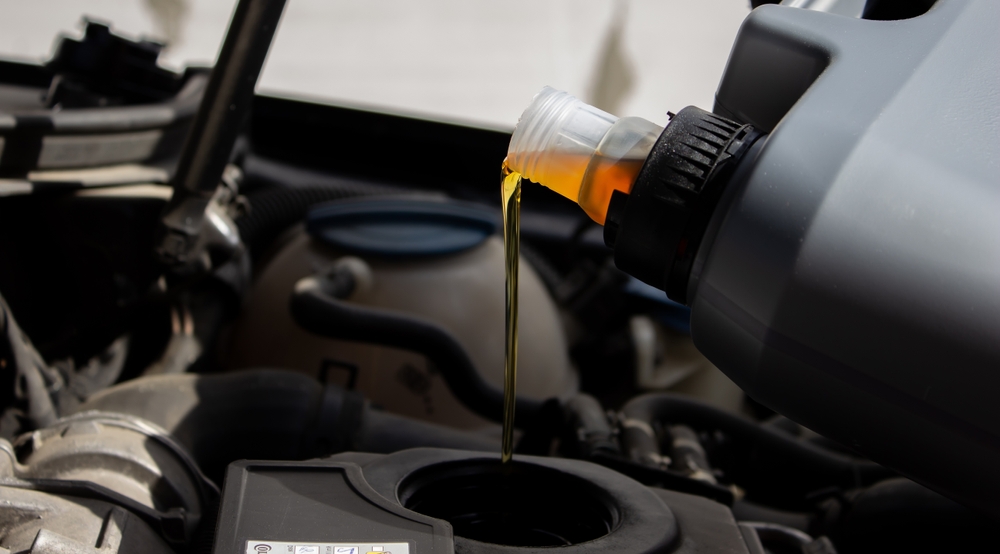
Drivers hear the same message over and over: synthetic oil delivers better protection, lasts longer, and saves money at the shop. That sounds clean and simple. It isn’t. Mechanics see the exceptions every day, and those exceptions matter. Some engines respond differently, some conditions break the rules, and some vehicles just aren’t worth the switch. Anyone maintaining an older car or managing repairs on a tight budget has to look past the hype and look at what synthetic oil actually does, and where it falls short.
Older Engines Sometimes React Poorly
Older engines, especially those built before tighter manufacturing tolerances became the norm, don’t always handle synthetic oil well. It flows faster and slips through gaps that conventional oil tolerates. When that happens, the engine starts burning oil or leaking around worn seals. The car ends up smelling like hot oil, and the dipstick drops faster than expected.
This isn’t a sign that synthetic oil is bad. It’s just a mismatch between old hardware and a newer product. Some drivers switch back to a thicker conventional blend, and the problem disappears. Synthetic oil promises better lubrication, but in older engines, that promise can create unintended side effects.
High Mileage Doesn’t Guarantee a Better Result
The idea that high-mileage engines automatically benefit from synthetic oil has taken hold. It sounds reasonable. More miles, more protection. But high-mileage engines often behave unpredictably when they meet a thinner, more aggressive detergent package. Sludge breaks loose faster. Deposits move through passages that were stable for years. The engine starts consuming oil in ways it never did before.
It’s not catastrophic. It’s disruptive. A car that ran smoothly for 150,000 miles on conventional oil can turn into a small maintenance headache after switching. Mechanics see it often enough to warn against assuming synthetic oil is the superior choice for every aging engine.
Some Engines Are Designed for Conventional Oil
Not every engine is designed for synthetic oil. Some older designs rely on thicker oil films. Some tolerate wear differently. The engineering behind those engines presumes a specific viscosity and behavior under heat. Changing the oil type can affect temperature management, lifter performance, or oil pressure.
Drivers who push an engine outside its intended design end up chasing odd symptoms: noisy lifters, fluctuating pressure readings, or minor leaks that appear out of nowhere. Mechanics don’t dismiss synthetic oil. They just look at the engine’s history and design before recommending it.
The Extra Cost Doesn’t Always Pay Off
Synthetic oil costs more. That’s no secret. The promise of longer intervals justifies the price, but that promise doesn’t fit every car. Some engines don’t run clean enough to stretch intervals safely. Others accumulate moisture during short trips. Idling, stop-and-go traffic, and cold starts all shorten the real-world life of synthetic oil.
The result is simple: the driver pays more for synthetic oil but changes it at conventional intervals. No benefit. Just a higher bill. Mechanics who understand a driver’s habits often recommend sticking with conventional oil because it matches the way the car is used.
Synthetic Oil Can Expose Existing Problems
When synthetic oil cleans the engine, it does it aggressively. Those detergents scrub away sludge that might have been sealing minor issues. A small leak that was invisible becomes obvious. A gasket that was holding together under a layer of buildup starts seeping. Drivers think the oil caused the problem. It didn’t. It exposed it.
That exposure forces repairs before the driver is ready. A car that seemed fine suddenly needs seals or a valve cover gasket. Synthetic oil isn’t the villain. But it’s not always the right tool for an engine with an unknown history.
Short-Trip Drivers See Fewer Benefits
Synthetic oil thrives under sustained heat and long cycles. That’s where it shows its strength. But drivers who rarely reach full operating temperature don’t gain much from it. Moisture and fuel dilution build up regardless of oil type. The car never warms enough to evaporate contaminants, and the oil degrades at a similar pace.
These drivers don’t get the extended life synthetic oil promises. They don’t see better performance. They just pay more. Mechanics who understand a client’s daily routine often steer them toward cheaper options that meet their needs without overspending.
A Practical Look at When Synthetic Oil Actually Helps
Synthetic oil delivers real benefits in the right circumstances. High heat, heavy loads, harsh climates, and turbocharged systems all thrive on its stability. But outside those conditions, the upgrade can be unnecessary. The car stays reliable with conventional oil, and the owner keeps money in their pocket.
The decision isn’t about brand loyalty or hype. It’s about matching the oil to the engine, the mileage, and the driver’s actual habits. That’s the part often left out of simple advice, and it’s the part that matters most. Have you ever tried synthetic oil and noticed changes you didn’t expect?
What to Read Next…
- 8 Car Hacks That Mechanics Beg You Not To Try
- 10 Car Features That Make Mechanics Rich
- 10 Things Your Mechanic Wishes You Knew Before Doing DIY Repairs
- 9 Car Brands Losing Trust With Mechanics
- 10 Car Brands That Are A Pain To Maintain And Why They’re Not Worth It
The post Why Mechanics Say Synthetic Oil Isn’t Always the Better Choice appeared first on Clever Dude Personal Finance & Money.







